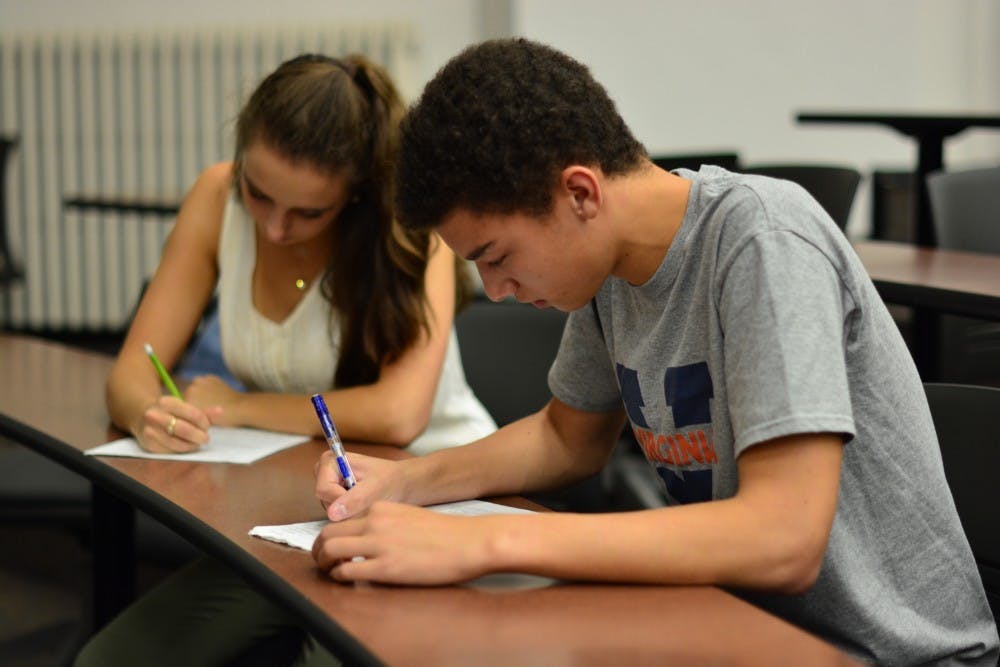With enrollment for the spring semester happening this week, students are scrambling to get into the classes they need to satisfy their majors, minors and graduation requirements. Staggered enrollment times can limit course availability for those with later times, which lead students to worry about completing their requirements on time. Although enrollment can be stressful, it offers an opportunity to explore academic areas one would otherwise avoid. Developing a well-rounded academic experience teaches students how to adapt — an important skill for success in the real world. Students should broaden their education in order to prepare themselves for life after leaving the University.
The University’s course enrollment system prioritizes students closer to graduation, and then allows those in honors programs such as the Echols Scholars or Rodman Scholars programs to sign up earlier than their classmates. After prioritization, students are then given a random sign-up time upon which they will have the ability to register for courses. For those who receive later random sign-up times, popular classes are often full by the time their enrollment opens, leaving seemingly little freedom to take courses of interest. That limitation, however, forces those students to find other, less immediately desirable classes to fill their schedules. By simply immersing themselves in the material of those seemingly undesirable classes, students can discover newfound interests, or at least help broaden their education to encompass a wider range of subjects.
Individual school requirements, such as those of the College of Arts and Sciences, force students to obtain some variety in their academic experience. Students can, however, fail to branch out of their comfort zones as a direct result of these requirements. They take a considerable amount of schedule space, and often force students to explore a new topic in order to satisfy an outstanding requirement. In the School of Engineering and Applied Science, however, students are limited by their requirements. Programs of study require intense specialization within a single field, and allow for very few elective courses. Even when Engineering students select electives, they must often come from a predetermined list of courses related to the relevant field. The requirements imposed by individual schools vary in scope, and all students should supplement their schedules with classes that explore areas outside of requirements. When requirements for majors or graduation do not need to be satisfied immediately, students should find classes with which they have no background in order to broaden their education.
Taking courses in areas outside a student’s comfort zone develops a well-rounded education. Students choose classes early in their college careers in order to experience the broad range offered by the University. Continuing this practice beyond the first stage of college is important because it develops in students an ability to adapt to new scenarios. Being adaptable is an important skill in college and beyond, as jobs often require multiple skillsets and the ability to quickly move between them. In addition, branching out helps students gain an appreciation for subjects with which they are unfamiliar, which is an important facet of any academic experience because it fosters the free exchange of ideas across disciplines. The call to branch out academically extends to all students, including those in the College. Students in the College may feel as though they are receiving a well-rounded education by simply fulfilling their graduation requirements, but there are still many courses that test the encompassing nature of the College requirements. Students in all areas of study should take classes that broaden their educational experience.
By striving for a well-rounded education, students prepare themselves for life beyond the University. Taking a wide variety of classes at the University necessitates adaptability on the part of the students — the skill-set needed for one subject may need to be adjusted to fit another, unrelated subject. A person’s ability to switch between skillsets can greatly aid success in academics and careers due to the efficiency with which they can complete individual tasks. In addition, people need to have a strong foundation across disciplines to enjoy the cultures around them, which is an important part of contributing to society. Overall, students should aim for a well-rounded education by taking advantage of the wide variety of classes offered at the University. Doing so will create in students a greater appreciation for the world around them, and will help to prepare them for life beyond the University.
Jake Lichtenstein is an Opinion columnist for the Cavalier Daily. He can be reached at j.lichtenstein@cavalierdaily.com.







